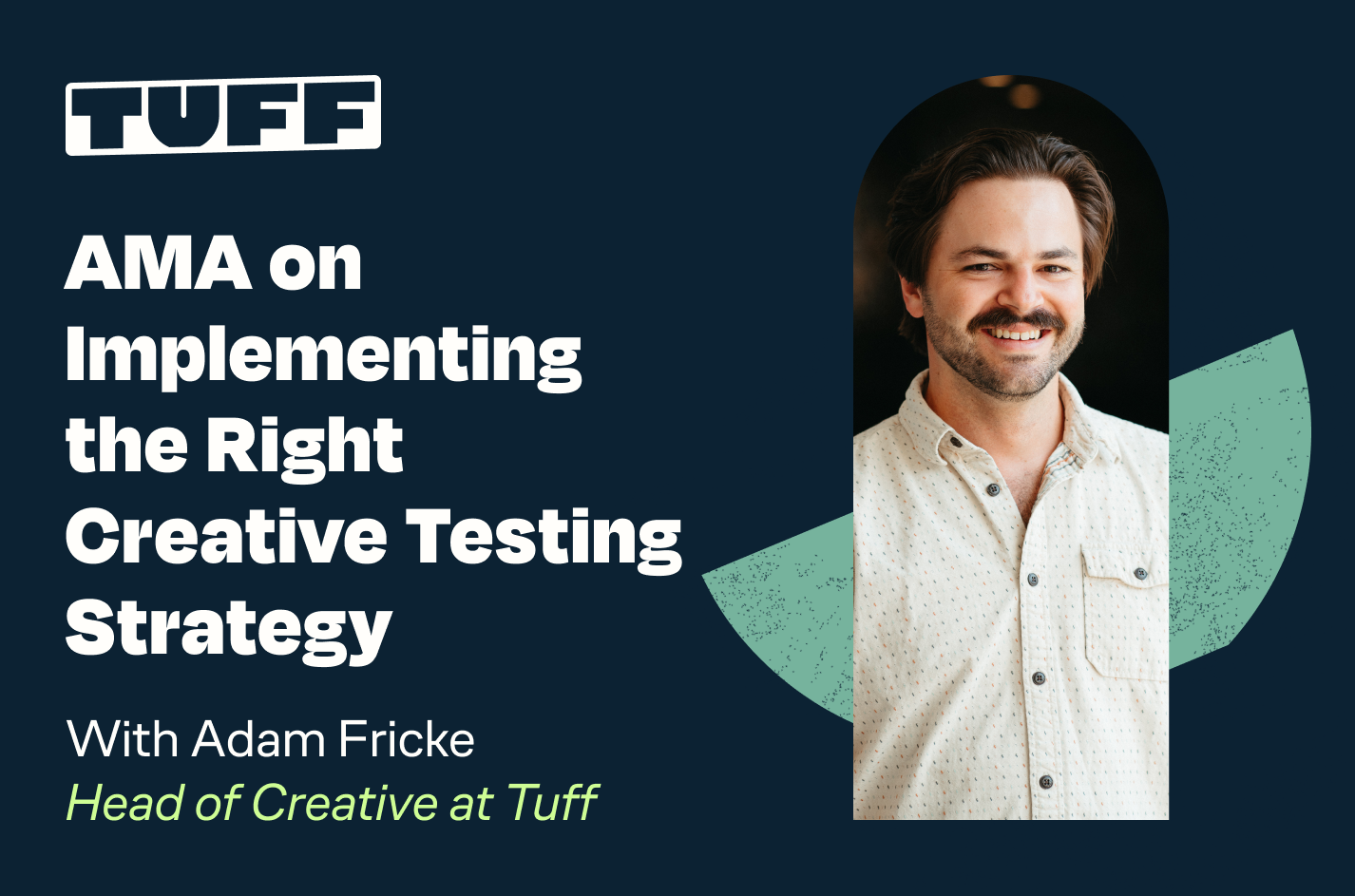Every Growth Marketing Framework and Formula Ever
Building a reliable, scalable growth marketing engine is central to the long-term success of any business. Done right, growth marketing drives sustainable, profitable growth, with a battle-tested framework that delivers a tangible return on investment by constantly optimizing every element of the marketing strategy.
And while you might primarily associate growth marketing with the tech industry, its principles can actually be applied to literally any field, and help companies of all shapes and sizes to prosper. Accordingly, the popularity of growth marketing has increased rapidly in recent years, and more and more businesses are abandoning more conventional marketing activities and reallocating resources towards a growth marketing approach.
Successfully embracing growth marketing means mastering new tools, frameworks, and formulas, many of which are radically different to traditional marketing strategies. There are many processes, frameworks, and formulas that outline the various elements of growth marketing. But sorting the good from the bad can represent a challenge – especially if you’re new to the field.
All good growth marketing frameworks and formulas have one thing in common: they bring clarity to your business. Great growth marketing doesn’t have to be complicated, or rely on a million different moving parts. Instead, a great growth marketing strategy clearly defines the most important things you need to focus on to deliver results.
As a growth marketing agency, Tuff’s approach to growth is constantly evolving. We embrace a growth mindset, and adopt the latest tools, processes, and perspectives as they emerge, incorporating them into our work to help us get that little bit better every day.
Every growth marketer should do the same. This field moves fast, but there’s some principles that have stood the test of time, and have established themselves as cornerstones of our industry. Let’s explore ten of the top growth marketing frameworks and formulas out there today:
#1 Forbes: Growth Marketing: A Five Step Framework
This framework, from Phillip Alexeev, Head of Growth at Sketchfab and a member of the Forbes New York Business Council, can be applied to any business, and helps marketers think through their growth strategy in five key stages:
- Identify a ‘North-star’ metric
- Achieve product/market fit
- Apply data and analytics
- Understand user journeys and funnels
- Analyze paid and organic traffic
We like this model because of its simplicity and accessibility. The five steps are progressive, and clearly outline the steps that businesses should take before diving into the deep end of growth marketing. All too often, we see businesses without product/market fit pursue growth marketing. But the fact is that it’s almost always extremely challenging to achieve sustainable growth with a product that doesn’t truly meet the needs of your market. Focus on nailing your product/market fit, and then scale your business with growth marketing.
#2 In The Know: A Three Step Framework
In The Know is a great resource for growth marketers, with regular podcasts and articles from some of the world’s top growth practitioners. Their three step growth marketing framework is based on years of research and experience successfully scaling businesses. It’s designed for businesses that have already achieved product/market fit.
The framework goes into great depth, and is built around the concept of ‘storyvesting’ – true, meaningful alignment between businesses and their customers. Businesses reach this status by deeply understanding their customers, closely aligning their product with their customers needs, and recruiting employees who truly believe in the alignment between customer and product. In some ways, it’s a step beyond achieving product/market fit.
Once a business reaches this point, they should focus on the three P’s that make up much of growth marketing: people, processes, and platforms. To be successful, businesses need skilled people, systematic, documented processes that are frequently updated, and a range of platforms, or marketing tools, that enable them to successfully conduct growth marketing. Apply these principles throughout your marketing funnel, and your business will be well positioned to create enduring customer relationships and sustained growth.
#3 Neil Patel’s Seven Step Growth Hacking Framework
If you search for growth marketing on Google, a lot of what you’ll find will be tips, tricks, and tactics that promise to help your business scale. But growth marketing demands much more rigor than that – applying a series of ‘growth hacks’ won’t deliver the sustained growth businesses desire. Instead, growth marketing is driven by clear processes, with a repeatable formula that enables you to quickly test out new ideas.
Neil Patel’s growth hacking framework starts with this idea at its very foundation, and expands into seven steps that, when followed, help businesses to create growth marketing playbooks that can be applied to all kinds of use cases.
Check it out here: How to Create a Growth Hacking Framework
#4 Demand Curve: A Methodical Process
This framework, from the team over at DemandCurve, explores the five key phases of a growth funnel. Like other models, before you can successfully apply these principles to your business, you need to have a product that people actually want. Without this product/market fit, the funnel quickly collapses, and your growth strategy will never truly get off the ground.
Here’s the five stages of the growth funnel:
- Acquisition: the channels that bring customers to your business
- Activation: getting customers to start using your product
- Revenue: getting customers to pay for your product
- Retention: ensure customers continue using your product in perpetuity
- Referral: evangelizing customers and encouraging them to refer others
You might see this model, or a variation of it, referred to as the AARRR model – it’s one of the fundamental ways of thinking through the various stages of a growth funnel, and appears in several frameworks. If you apply it to your business, ensure that there are tangible metrics that can be reviewed at each stage, and use them to continually iterate and optimize every element of your growth funnel.
#5 CrowdTamers: A Seven Step Process
Growth marketing is all about continuous experimentation and ideation. But without a framework to effectively measure every new acquisition channel or retention initiative, it’s all too easy for a growth marketing strategy to get off track.
This framework from CrowdTamers provides growth marketers with seven repeatable steps that can be used to systematically test every element of a growth marketing strategy. It starts by helping marketers understand how to define and measure their marketing funnels, and then outlines how growth teams should conceptualize, prioritize, test, and evaluate their ideas.
We’re fans of this framework because it helps marketers easily identify the metrics they should focus on. As an extension of that, the framework also makes it easier to understand the actions that will have a direct impact on moving the needle on these metrics, closely tying actions to results.
#6 Lean Labs: The 6 Levers of Growth
Effective growth marketers know which levers to pull to deliver growth. In many ways, growth marketing is like operating a complex piece of machinery, and it’s important that marketers understand the relationships between the various levers that drive growth.
Lean Labs, a team of growth marketers, highlight six key levers of growth in their framework, which they call the AAARRR growth marketing framework. It’s similar to Demand Curve’s framework, and is sometimes referred to as the pirate funnel (Aaarrr… get it?). Here’s what each letter stands for:
- Awareness
- Acquisition
- Activation
- Revenue
- Retention
- Referral
In a traditional business, the three A’s of the framework are handled by marketing, and the three R’s are managed by sales. But in the view of the team at Lean Labs, it’s important that businesses take a more joined up approach to ensure each lever, and the relationship between them, is fully optimized. We agree.
#7 Growthmentor: From Framework to Experimentation in 90 Days
This growth marketing formula, from Christopher Schachner at Growthmentor, walks businesses through the first 90 days of building a growth strategy from scratch. It incorporates many lessons from elsewhere, including the AAARRR framework, and emphasizes the importance of aligning on North-star metrics.
To successfully get the ball rolling on a growth marketing strategy, businesses should follow the following steps:
- Day 0 – 7: Setting the stage
- Day 8 – 15: Identifying and building frameworks
- Day 16 – 30: Analyzing potential growth channels
- Day 31 – 38: Building processes to rigorously experiment
- Day 39 – 53: Running various experiments
- Day 54 – 90: Optimizing strategies based on initial learnings
#8 Mbudo: Three Step Growth Marketing Framework
Mbudo is an inbound marketing agency that helps to scale B2B tech companies in Europe. Their growth marketing framework keeps things simple, outlining the three most important steps businesses should bear in mind as they implement a growth marketing framework:
- Identify and track key metrics
- Understand and strengths and weaknesses
- Secure buy in and alignment from the entire organization
> Learn more about Mbudo’s three step growth marketing framework
#9 The Ladder Growth Blueprint: An Interactive Strategy Framework
This blueprint, from growth marketing strategists Ladder, is designed to act as a map of a businesses marketing funnel and growth strategies.
If you’re new to growth marketing, it can be all too easy to dive into testing all kinds of channels and strategies without having a solid understanding of the relationship between them; nevermind the impact they have on your overall growth marketing funnel. With so many channels out there, this is a great way to burn through your budget fast, with little to show for it.
Ladder’s interactive growth framework seeks to address that. It provides marketers with formulas to measure the effectiveness of their entire funnel, identifies areas of concern, and gives marketers the metrics they need to make better decisions. We recommend that marketers use the blueprint as a living document, and focus on the output and process – it’ll help you identify which levers to pull to increase growth.
#10 New Breed: Five Steps for Running an Experiment
Running experiments is a central component of any growth marketing strategy. After all, growth marketing is driven by data, and it’s impossible to get high-quality data without constant ideation, testing, and analysis.
This framework from the team at New Breed offers a series of guidelines that specify how growth marketers can run effective experiments across every stage of the AAARRR growth marketing cycle. Here’s a brief overview of each step:
- Identify metrics that need improvement
- Design an experiment around this focus area
- Run the experiment, making sure you achieve statistical significance
- Analyze the results
- Start the next experiment
Key Takeaways from Our Top Ten Growth Marketing Frameworks
There you have it: ten frameworks from some of the world’s best growth marketers. Some frameworks have as few as three steps, while some have as many as seven. Each approach is called something different: a framework, a formula, a system, a process, and so on.
But by now, you’ve probably realized that there’s a lot of overlap between these frameworks. That’s not surprising: they’re all based on similar principles, and they’ve all been tested and refined to ensure they work.
We get it – you’re not going to apply ten different frameworks to your growth marketing strategy. That would add more confusion than clarity. Instead, identify the core elements they all share, and take inspiration from the best pieces for each framework. Here are our key takeaways from these growth marketing frameworks:
Product/Market Fit is a Prerequisite to Success
Unless your business has product/market fit, it’s unlikely you’ll be successful. If your product doesn’t satisfy the needs of your customers, no growth marketing strategy will save it. When you’ve got product/market fit, you’ll know it – if you don’t, keep working on your product.
Identify Your North-Star Metrics
Remember, growth marketing is driven by data. And as the old adage goes, you can’t manage what you can’t measure. Identify the metrics that are the clearest indicators of the success of your growth marketing strategy. What those are will be dictated by the nature of your business, but it’s crucial you closely monitor them and gear every element of your framework towards improving them.
Master The AAARRR Funnel
Virtually all of these frameworks, whether they called it the AAARRR funnel or not, are premised on the importance of optimizing every element of the marketing funnel. Getting familiar with the various levers you can pull at the Awareness, Acquisition, Activation, Revenue, Retention, and Referral stages of this funnel are key to creating a winning strategy.
Commit to Constant Experimentation
Growth marketing moves fast, and new technologies, processes, and best practices are constantly emerging. The ability to rapidly generate new ideas, rigorously test them out, and act quickly on the results is central to the continuous improvement of your growth marketing strategy.
Tuff Growth: Your Trusted Growth Marketing Partner
These processes are all well-documented and proven to scale across a variety of industries. But real growth isn’t driven solely by frameworks and formulas: it’s driven by the right team.
At Tuff Growth, we’ve got a deep bench of talent, from experienced growth marketers that build and manage bespoke growth strategies, to channel experts that get down in the weeds and own the details on every single platform.
Want to learn more about growth marketing? Check out our 50 page growth marketing guide. It’s an open scrapbook that walks you through our approach to growth, and shares the step-by-step process we’ve successfully applied to scale more than 50 companies across a wide variety of industries.
> Get Tuff’s Growth Marketing Guide now

Ellen is the founder at Tuff and one of the team’s core growth marketers. She is a versatile marketer with expertise in multiple channels – from ppc to seo to email to others – responsible for the experiments and testing. She is happiest when she’s on the ski hill or outside pointing her mountain bike downhill.




